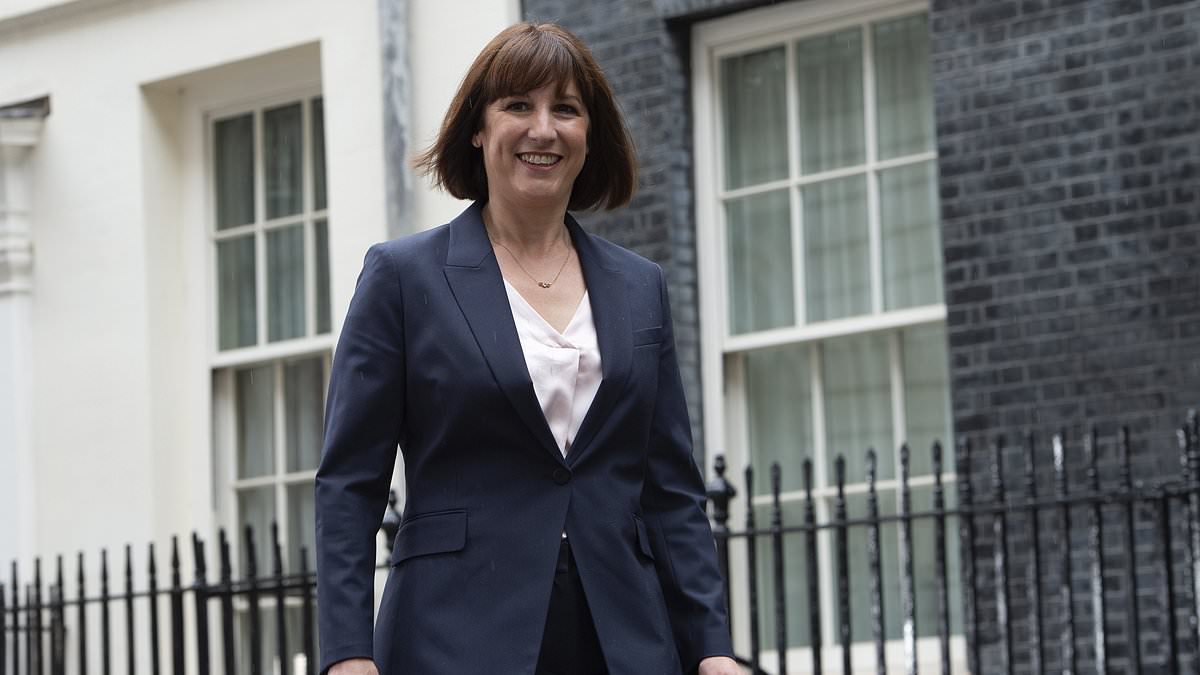Brits are anxiously waiting to hear whether the Bank of England will finally start cutting interest rates today.
The Monetary Policy Committee is set to make a knife-edge call at noon on whether to lower the cost of borrowing from a 16-year-high of 5.25 per cent, where it has been since last August.
The prospects have been boosted by inflation returning to the Bank’s 2 per cent target after nearly three years of rampant cost of living pressures.
However, stubborn price rises in the services sector – partly driven by the boom from Taylor Swift’s Eras tour – raised doubts about whether the MPC will act before September.
And those reservations have been fueled by new Chancellor Rachel Reeves signing off a swathe of inflation-busting pay hikes for the public sector this week.
She has also offered junior doctors 22 per cent over two years in a desperate bid to end damaging strike action.
Financial markets have priced in a 65 per cent chance of a rates reduction – which would be the first in more than four years.
Governor Andrew Bailey will also issue a report and hold a press conference after the announcement giving further insight into the Bank’s view on the state of the economy.
The IMF warned recently that there is an increased prospect of ‘higher-for-even-longer’ interest rates due to persistent wage and services inflation.
In June the MPC voted by seven to two to leave interest rates at 5.25 per cent, but gave a strong hint that it was moving towards a reduction.
Economists stressed that other key indicators of inflationary pressure – mainly services inflation and wage rises – have remained a concern for policymakers.
James Smith, developed market economist for ING, said it will be a ‘close call’ but he expects a majority of policymakers to vote in favour of a 0.25 percentage point rate cut on Thursday.
He said services inflation – which looks only at service-related industries such as hospitality and culture – is the ‘guiding light for Bank of England policy right now’.
‘More recently, services inflation has been propped up by a spike in hotel prices,’ he said, suggesting the Bank could be less concerned by the ‘highly volatile’ data.
‘The bottom line is that there is just about enough in the recent data to give the Bank confidence to begin lowering rates,’ Mr Smith concluded.
Sanjay Raja, senior economist for Deutsche Bank, also predicted that rates will be cut to 5 per cent but stressed it will be a ‘delicate balance’.
He said Mr Bailey could be among the members on the MPC opting for a rate cut.
On the other hand, Andrew Goodwin, chief UK economist at Oxford Economics, said the MPC could hold rates at 5.25 per cent for another month.
He said little hints among MPC members in recent weeks suggest they were thinking of voting for a cut, and were more likely to use Thursday’s meeting to ‘lay the groundwork’ for a 0.25 percentage point reduction in September.
Experts at Pantheon Macroenomics agreed that policymakers could keep rates on hold in August but ‘signal they expect to cut rates in the coming months’.
‘The swing voters — Andrew Bailey, Clare Lombardelli and Sarah Breeden — have not spoken since the General Election, which could suggest they are not ready to take the plunge,’ Pantheon’s economists said.
Appearing on Sky News yesterday, ex-Chancellor Lord Hammond said he was ‘pretty sure we will get rate cuts this year’ – questioning Rishi Sunak’s choice to call an early election.
‘Whether or not the Bank will cut as early as this week I’m not so sure,’ the former Tory MP said.
‘Although the headline rate of inflation looks relatively stable at 2 per cent services are still rising at quite an alarming rate.
‘That is being driven by wage increases that are way above the rate of inflation.
‘The Bank of England will be worrying that these wage increases are going to feed back into a spiral that will start to push prices back up again.
‘I think there is quite likely to be a majority on the MPC for waiting a little bit longer.
‘Of course, Rachel Reeves, this week has given a boost to those cpncerns by accepting the public sector pay review body settlements in full – which never mind the rights and wrongs of it, is a boost to pay inflation in the UK and is likely to mean pay settlements generally across the board move to a higher level.’
Alice Haine of online platform Bestinvest by Evelyn Partners predicted it would be an ‘ultra-close call’ for the Bank.
‘Rates have remained at a 16-year-high of 5.25 per cent for a year amid lingering inflationary pressures in the economy, and economists are divided on what will happen on Thursday, with expectations it will be an ultra-close call of five-to-four either in favour of a rate cut or for the headline rate to remain unchanged,’ she said.
‘UK Inflation may have held at the BoE’s target level of 2 per cent in the 12 months to June, but the central bank will have concerns about other measures of underlying inflation which remain stubbornly high.
‘These include sticky services inflation, a crucial driver of overall inflation, which remained at 5.7% in the 12 months to June, the same level as the previous month, while wage growth, which is easing, remains hotter than hoped and continues to outpace price rises.
‘Throw in stronger economic growth in May, with gross domestic product expanding by 0.4 per cent in May, double the expected figure, set against a picture of rising unemployment, which now stands at 4.4 per cent – something that may help to ease wage pressure – and it’s easy to see why the BoE has a difficult decision on its hands.’
